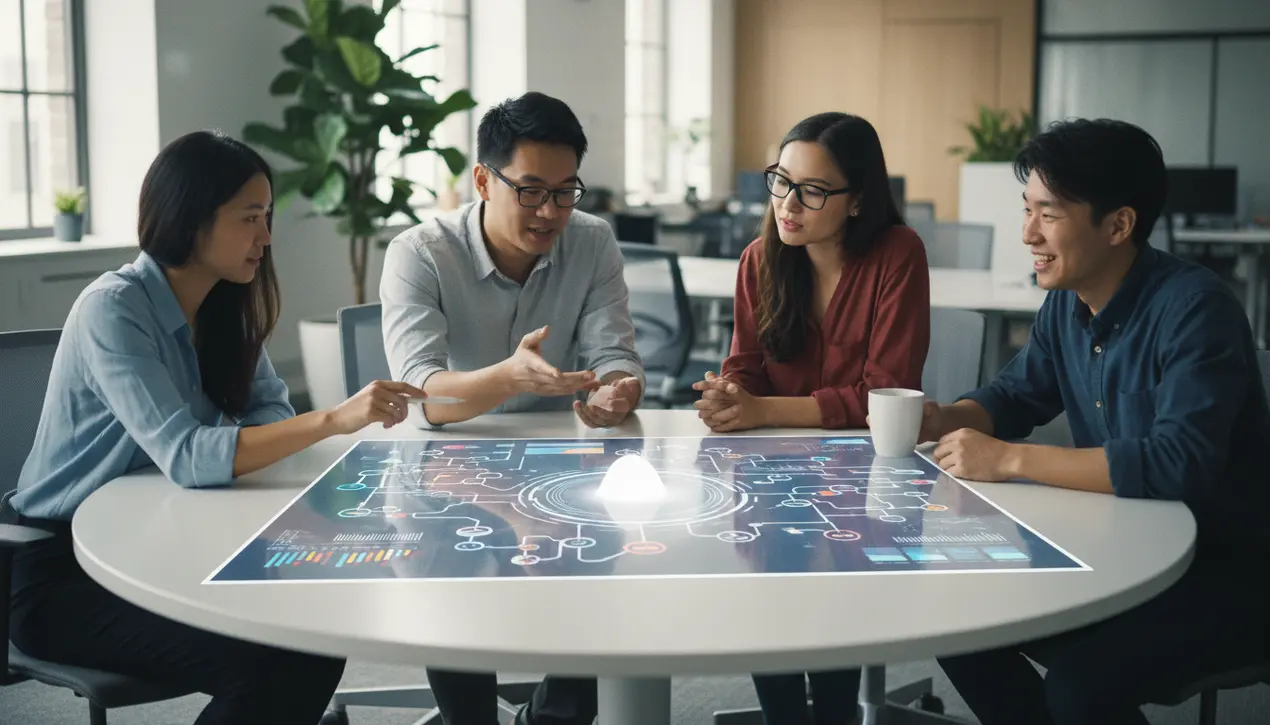
AIenterprise aiAI in Finance and Banking
ChatGPT Group Chats Launched in Limited Pilot for Select Regions
DA
Daniel Reed
3 hours ago7 min read
The long-anticipated arrival of ChatGPT Group Chats, initially unearthed through leaked code and subsequently validated by OpenAI's official announcement, marks a significant evolution in how we conceptualize human-AI interaction. This isn't merely an incremental update; it's a foundational shift from a solitary, one-on-one dialogue with a large language model to a dynamic, multi-participant collaborative environment.Imagine a digital roundtable where up to twenty individuals can seamlessly integrate a sophisticated AI like GPT-5. 1 Auto into their brainstorming sessions, project planning, or casual conversations, with the model acting not as a detached oracle but as an active, context-aware participant capable of reacting with emojis and even personalizing generated content using members' profile photos.The strategic decision to launch this feature as a limited pilot exclusively in Japan, New Zealand, South Korea, and Taiwan is a telling move, one that suggests OpenAI is conducting a nuanced, real-world stress test of the model's social and cultural adaptability. This pilot phase serves as a critical data-gathering mission, allowing the company to observe how group dynamics, conversational norms, and collaborative patterns vary across different user bases before a global rollout.The technical underpinnings are particularly fascinating for those following the trajectory of LLM development. As noted by OpenAI's own Keyan Zhang, the internal experimentation revealed that their models possess latent capabilities far exceeding the constraints of current single-user interfaces.The 'multiplayer' concept was initially considered 'wild' and 'out-of-distribution,' yet the model's performance demonstrated a surprising aptitude for the chaotic, multi-threaded nature of group discourse. This suggests that our current interactions with AI are merely scratching the surface of its potential, and features like group chats act as new 'containers' to unlock more of this sophisticated reasoning and contextual understanding.From a competitive standpoint, this move places OpenAI in direct contention with Microsoft's recent Copilot group chat updates and Anthropic's Projects feature for Claude, though the latter operates more as a shareable context than a real-time collaborative space. The privacy-centric design, which deliberately decouples group chats from the persistent memory system and excludes this data from training pipelines, is a crucial differentiator that will resonate with enterprise data leaders and privacy-conscious users alike.For AI engineers and orchestration specialists, the current closed nature of the feature—with no announced API or SDK access—presents both a limitation and a challenge. It signals that OpenAI is treating this as a core user experience feature for now, forcing enterprises seeking similar multi-user functionality to build complex custom orchestration layers to manage multi-party context across separate API calls. The implications for the future of work, education, and social interaction are profound, positioning ChatGPT not just as a tool, but as a nascent platform for shared intelligence and collective problem-solving.
#ChatGPT Group Chats
#OpenAI
#Multi-User Collaboration
#Generative AI
#Enterprise AI
#featured
Stay Informed. Act Smarter.
Get weekly highlights, major headlines, and expert insights — then put your knowledge to work in our live prediction markets.
Related News
Comments
Loading comments...
© 2025 Outpoll Service LTD. All rights reserved.